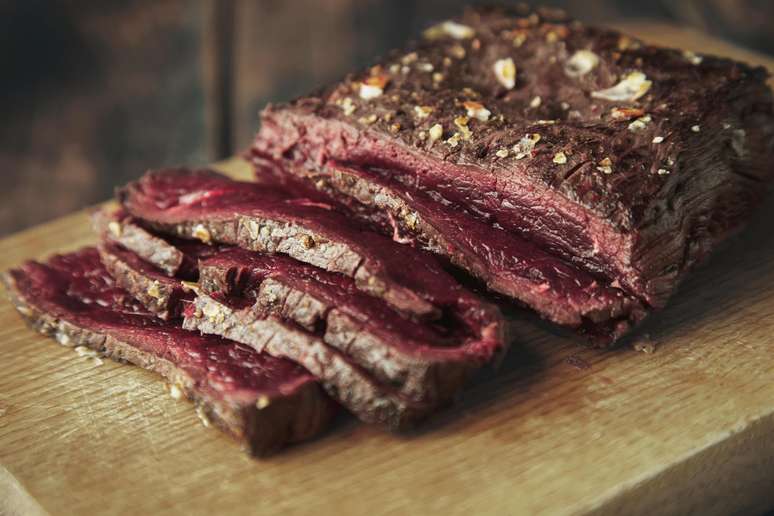Many people believe that the reddish liquid that runs from raw or not very cooked meat is blood. However, this is a fairly common myth. The “red water” that we see on the trays of supermarkets or when the meat is thawed is, in fact, a mixture of water and a protein called myoglobin, responsible for giving food its characteristic color and flavor.
What is myoglobin?
“Myoglobin is a reddish protein present in the animal’s muscles. The blood is removed during the slaughtering process and this means that when the meat is served, regardless of where you eat it, it no longer exists,” explained the chef Ju Lima in a video published on his YouTube channel.
According to the expert, this red liquid is mainly composed of water and dyed red due to myoglobin. “In other words, it’s not blood,” he concluded.
Present in the muscle fibers of animals, it has the function of storing oxygen in the muscles. When the meat is cut and exposed to the air, this substance comes into contact with oxygen and takes on an intense red shade, which makes many confuse it with blood.
It is myoglobin that gives red meat, such as beef, its characteristic color. Chicken and fish meat, for example, have a lower concentration of myoglobin, which explains the clearest color.
Why does meat release liquids?
When the meat is preserved, especially if frozen and then defrosted, part of the water naturally contained in its fibers mixes with myoglobin and forms this reddish liquid. It is a natural and harmless process, which does not indicate that the food is avaried.
To avoid excessive loss of this liquid, experts advise to slowly defrost the meat in the refrigerator, and never at room temperature or in hot water, which could compromise its consistency and encourage the proliferation of bacteria.
Another common mistake is to associate the redest tone of the meat with its freshness. The color may vary depending on the type of cut, exposure to oxygen and also of how it is preserved. The darker meat is not necessarily ruined. In many cases, it has simply suffered less oxidation of myoglobin.
Source: Terra
Ben Stock is a lifestyle journalist and author at Gossipify. He writes about topics such as health, wellness, travel, food and home decor. He provides practical advice and inspiration to improve well-being, keeps readers up to date with latest lifestyle news and trends, known for his engaging writing style, in-depth analysis and unique perspectives.








-1ien89ws1amuo.jpeg)
